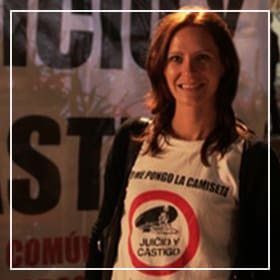EASA’s Annual General Meeting (AGM) Symposium “On politics and precarities in academia: anthropological perspectives” took place in mid-November at the University of Bern. The two-day seminar, organised in cooperation with the Institute of Social Anthropology, the PrecAnthro Group and the Swiss Anthropological Association, was an inspiring albeit challenging event to all who attended. The programme consisted of three workshops, a keynote lecture and a pre-workshop led by Bern’s AnthroCollective. More than 50 participants from 20 countries shared their anthropological and auto-ethnographic insights and structural critiques on academic precarity understood as the intersection of neoliberal austerity politics and authoritarian political tendencies that threaten academic freedom and produce unpredictable conditions for early career scholars and the discipline as a whole. But more than that, the symposium served as a kind of wakeup call for no longer accepting such impositions.
It encouraged hope in the power of solidarity, unionism and collective action.
Trapped between cooperation and competition
The event began with two parallel sessions: EASA’s Executive meeting running alongside a pre-workshop on “Precarious norms and empowering alternatives”, organised by the Swiss branch of the PrecAnthro group. I attended the latter, which continued our previous meeting held at the EASA conference in Milan in 2016, in which more than 150 early career scholars came together to share their experiences with the precarisation of academia. It started with the presentation of national case examples and a report on the activities of the PrecAnthro initiative by Carrie Benjamin, Dan Hirslund, Mariya Ivancheva and Sabine Kradolfer, and then opened the floor to collective brainstorming. Suggestions included strengthening a transnational network and establishing more regional action groups; gathering data on precarity and documenting case studies; highlighting communalities rather than differences, and thinking how to make anthropology count outside universities. The challenging situation of ‘coopetition’ amongst young scholars, who equally seek to cooperate for and compete against each other over the scarcity of academic positions, made us aware of the importance to think outside the box and to fight for structural changes rather than to follow the race to the bottom in which there is no prospect of victory.
Solidarity against precarity
In the afternoon, the main programme started with the workshop “Politics and precarious lives” chaired by Sarah Green (Helsinki University). Coming from an anthropological perspective and – more often than not – auto-ethnographic reflections on the precarisation of academia, speakers and participants discussed recent political persecutions of academics and academic censorship in places such as Turkey or Pakistan and the very real threats that thousands of our colleagues experience these days. Five papers in this session addressed not only how precarity is produced by the interplay of nationalism, right-wing populism and austerity that effect university education and academic freedom, but also how subtle and quite disciplining effects generate anti-intellectual tendencies and fragmentations within solidarity circles. Analysing geographic, economic and political insecurities as the condition of our times demands that anthropologists tackle these diverse challenges and engage in collaboration, activism and collective resistance.
Taking up these conversations, Özlem Biner’s keynote lecture on the “Production of ‘Dangerous Knowledge’” was the highlight of the first day. Speaking from the heart while equally theorising the work of terror and silence, Biner’s presentation urged us to engage with precarity understood as both political and economic hardship, and to rethink the meaning of resistance/solidarity under such exceptional albeit increasingly ‘normalised’ circumstances of political repression. Her lecture not only evoked intense discussions during the Q&A session, but also fuelled dynamic conversations and strategising during the subsequent reception.

A shattering critique of the neoliberalisation of academia
The symposium’s second day opened our eyes to the challenges of invisibility, exploitation of workforce, the pressure to publish, a lack of future perspectives and fierce competition experienced by early career scholars. In the two-hour morning workshop “Structural Precarity in Anthropology” the chair, Georgeta Stoica, miraculously managed to allocate enough time to all nine speakers. Presentations by doctoral and postdoctoral scholars as well as the report on the pre-workshop meeting brought about a shattering critique about the neoliberalisation of academia. Furthermore, the papers urged us to understand precarity as an intersectional process in which gender, nationality, race and class still determine advantages or disadvantages for contemporary academic careers.
Mobility, prevented and forced
Strikingly, and the profession’s contradictory and mutually reinforcing moments of distress produced by respective immobility and forced mobilities as part of precarious academics’ working conditions has become a major obstacle in academic career paths. Not least during our meeting in Bern, where the very real experience of immobility demonstrated empirically how border regimes hinder the work of academics. For example, Vinicius Kauê Ferreira, who was to talk about “Mobility as precarity in contemporary academia: notes on South Asian social scientists building an academic career in Europe”, could not give his paper precisely because of visa problems that prevented his travel. His ‘migranthood’ not only (as he would have argued) leads to political dis-empowerment, but also prevented his attendance at the event. Equally, on the first day of our meeting, Esra Dabagaci from Ankara University had to join the debate via video conference.
While certain academics struggle with immobility, others addressed the wide spread phenomenon of academic nomadism. Mobility and international profiles are increasingly valued in academic work-environments. Even though working in different Universities can be enjoyable and is strongly encouraged by funding bodies such as the ERC or hiring committees throughout Europe, it is those who experience the enforced hyper-mobility who presented a different perspective.
Mobile scholars who move country regularly to follow their fix- and often short-term postdoc or replacement positions not only face professional and economic insecurity, but also lose control over time and space as well as personal and family development.
Simultaneously, however, while flexibility has become a key component to the success of landing the next position, nepotism and the lack of transparency in hiring processes still facilitate appointments that have little to do with meritocracy.
Precarity affects researchers and research
Day two also addressed the challenges precarity poses to our academic output, professional development and quality of research imminent in the lack of continuity. Regular transitions between universities, across borders and disciplines, constant applications for the next position, as well as the need to reinvent oneself regularly in new research projects affect not only our more precarious colleagues. Rather, these neoliberal market logics and streamlined processes of publishing are damaging to ethnographic fieldwork and anthropological theorising across all levels of academia. They thus address the heart of the anthropological endeavour—long-term, empirical field engagement. Hence, the complex strands of political, economic, professional and personal intricacies produce a lack of continuity and increasingly more narrow options for a promising career path.
The third and concluding workshop “Transnational collaborations against political and structural precarity” presented a series of already existing initiatives that deal with the issue of precarity. Ester Gallo gave an overview of the Scholars at Risk initiative. Chandana Mathur from the World Council of Anthropological Associations presented a survey that is currently being conducted on anthropological fieldwork and risk in a violent world. Finally, Martin Fotta presented the trial-survey on precarity in academia developed by the PrecAnthro group in cooperation with EASA. This survey will help explain the working conditions of anthropologists in Europe, drawing a more detailed picture of academic precarity. Even with as little as 32 test persons (remember it was a test survey), striking facts showed that two thirds of these colleagues are employed on fix-term contracts, with half of these having moved country at least once in the past two years and on average working between three and 16 unpaid hours per week.
Being one of the privileged ones
Nevertheless, one phrase I heard regularly during our seminar was “I’m saying this as one of the privileged ones” – meaning one of the people who at least have a job in academia, even if that job comes with challenging living conditions. What does such an embodied self-image mean for the vision we create of our very being as academics? Certainly, working academically is a privilege, enjoying relatively high salaries and a kind of freedom that is hard to beat in other areas of employment. But what does freedom mean if it is forced upon its subject? What does mobility create in people who have to move themselves and sometimes their whole families every second year? And what kind of privilege are we talking about when higher education, the merits of a PhD and book/article publications still do not provide any hopes for a permanent position? It seems to me, that to be one of the privileged ones has become a contested term.
Perhaps privilege as a concept needs serious rethinking?
Against the market and the state’s terror
All in all, the two-day symposium increased our understanding for the intersections of professional precarity experienced as insecurity produced by anti-intellectual political environments, neoliberalisation, market pressures as well as a new form of nomadism in academia. Many, especially those who feel a certain belonging to the ‘lost generation in academia’ have already been familiar with ‘precarity’ understood as the rule rather than the exception for those living on the scholarly margins. What made the event so productive was the felt need for activism. Not only the ‘unfortunate few’ but our academic profession, our work, our research and the discipline as a whole are under thread by neoliberal dynamics that intend to silence critical voices not only in authoritarian states but increasingly throughout Europe.
It is time to stand up and battle against these developments, to break with patterns of censorship and to ask for labour rights, equal opportunities and justice. The AGM Seminar in Bern was a first step into that direction as a community was strengthened and new ideas were developed.
With an eye on the future, I therefore want to mention some of the upcoming events, publications and urgent activities: In Turkey, the first court hearings against academics who had signed the Peace Petition in 2016 and are since being accused of ‘propagandizing for terror’ started on Dec 5, 2017 at the Justice Palace in Istanbul. For more information on how you can support our Turkish colleagues and contribute to much needed solidarity networks, please look up barisicinakademisyenler (Academics for Peace). Inspired by the Bern Symposium, a number of initiatives have been put in place: Swiss non-tenured academics have created a solidarity group, which seeks to investigate potential options to counter the worsening situation of precariousness within Swiss academia (please get in touch with the organisers of PrecAnthro to start similar initiatives in other countries). Another transnational PrecAnthro group meeting will take place at the 2018 EASA Conference in Stockholm. And a workshop is planned during the sixth ‘Why the World Needs Anthropologists’ symposium on ‘Designing the Future’ in October in Lisbon. Furthermore, findings from the seminar and the WCAA and EASA surveys will lead to a position paper that will be presented to different Universities as well as the European Commission’s Director General for Research, Science Affairs and Inclusion. Finally, in order to carry the ongoing debate into a wider audience, a special issue is in planning in collaboration with the editors of Social Anthropology.
Empowered by these and similar initiatives, we all feel that the shared understanding for much needed collective action and unity across the diverse levels of academic positions and national borders will facilitate effective opposition to structural and political precarity experienced by those lost in the dark times of academia’s precarious normalcy. Questions however remain: Will the collective experience encourage action against a system that produces increasingly uncertain futures and exploitive positions for the ‘privileged few’? Can the past two days carry us, or will the dividing line between those closer to the promised land of academic tenure cripple the awareness of much needed resistance of a community in survival mode?
While I intend to stay hopeful, I also have my doubts, knowing that, after finishing this report and a short coffee break, I will go back to writing my next application for a one-year research position advertised far from the place I call home.





